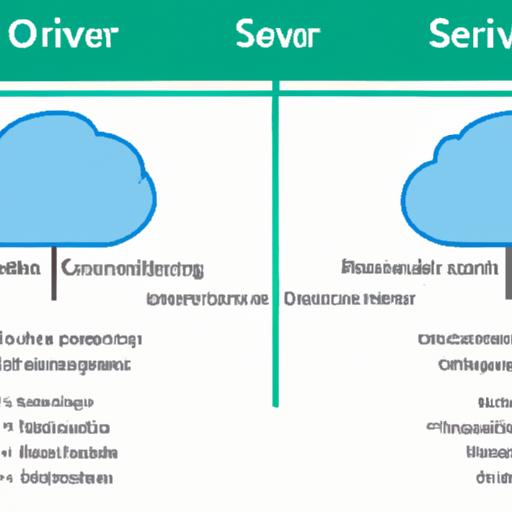
Introduction
Cloud computing, a term often heard but not always understood, encompasses a groundbreaking technology that has reshaped the way businesses operate in the digital age. Simply put, cloud computing refers to the delivery of computing services over the internet, providing access to a wide array of resources and applications on a pay-as-you-go basis. This innovative approach eliminates the need for physical servers and infrastructure, offering unparalleled scalability and efficiency to organizations of all sizes.
In today’s fast-paced and interconnected world, the importance of cloud computing services cannot be overstated. From enhancing collaboration and communication to streamlining business operations and data management, cloud services have become the backbone of modern enterprises. By leveraging the power of the cloud, businesses can harness cutting-edge technologies, drive innovation, and stay ahead of the competition in an increasingly digital landscape. Join me on this journey as we delve deeper into the realm of services in cloud computing and uncover the endless possibilities they offer.
What is a Service in Cloud Computing
Overview of Cloud Computing Services
Cloud computing services encompass a diverse range of offerings that cater to various needs and requirements of businesses and individuals. These services are delivered over the internet and are designed to provide access to computing resources on-demand, without the need for physical infrastructure. From storage and processing power to software applications and development platforms, cloud services offer a flexible and cost-effective solution for organizations looking to optimize their operations and drive digital transformation.
Types of Cloud Computing Services
-
Infrastructure as a Service (IaaS): IaaS provides virtualized computing resources over the internet, allowing users to rent servers, storage, and networking infrastructure on a pay-as-you-go model. This service offers maximum flexibility and control, enabling businesses to scale resources based on their needs and requirements.
-
Platform as a Service (PaaS): PaaS offers a complete development and deployment environment in the cloud, allowing developers to build, test, and deploy applications without the hassle of managing underlying infrastructure. This service accelerates the development process and enhances collaboration among development teams.
-
Software as a Service (SaaS): SaaS delivers software applications over the internet on a subscription basis, eliminating the need for installation and maintenance. Users can access applications from any device with an internet connection, making it an ideal solution for businesses looking to streamline their operations and enhance productivity.
By understanding the diverse landscape of cloud computing services, organizations can leverage the right tools and technologies to drive innovation and achieve their business objectives with ease and efficiency.
Benefits of Using Services in Cloud Computing
Cost-effectiveness
One of the primary advantages of utilizing services in cloud computing is the cost-effectiveness it offers. Traditionally, businesses had to invest in expensive hardware, software, and infrastructure to support their IT needs. However, with cloud computing services, organizations can leverage a pay-as-you-go model, only paying for the resources they use. This not only reduces upfront costs but also eliminates the need for maintenance and upgrades, resulting in significant cost savings in the long run.
Scalability
Scalability is another key benefit of cloud computing services. In a dynamic business environment where demands can fluctuate rapidly, the ability to scale resources up or down based on requirements is crucial. Cloud services provide organizations with the flexibility to adjust their computing capacity seamlessly, ensuring optimal performance and efficiency. Whether experiencing sudden spikes in traffic or expanding operations, the scalability of cloud services empowers businesses to adapt quickly and stay agile in the face of change.
Flexibility
Flexibility is a fundamental aspect of cloud computing services, allowing businesses to customize their IT solutions to meet specific needs and goals. With a wide range of services and deployment models available, organizations can tailor their cloud infrastructure to suit different workloads, applications, and business requirements. This flexibility not only enhances operational efficiency but also enables businesses to innovate and explore new opportunities without being constrained by traditional IT limitations.
Common Challenges in Using Services in Cloud Computing
Security Concerns
One of the primary challenges organizations face when adopting cloud computing services is the issue of security. Entrusting sensitive data and critical applications to third-party cloud providers raises concerns about data breaches, unauthorized access, and compliance with industry regulations. As cyber threats continue to evolve and become more sophisticated, ensuring the security of cloud-based services remains a top priority for businesses across all sectors.
Data Privacy Issues
In addition to security concerns, data privacy issues pose a significant challenge for organizations utilizing cloud computing services. The storage and processing of vast amounts of personal and confidential data in the cloud raise questions regarding data ownership, access controls, and regulatory compliance. Striking a balance between leveraging the benefits of cloud technology and maintaining data privacy rights is a delicate tightrope that businesses must navigate to uphold customer trust and safeguard sensitive information.
Integration with Existing Systems
Integrating cloud services with legacy systems and on-premises infrastructure presents another common challenge for organizations transitioning to the cloud. Ensuring seamless communication and interoperability between disparate systems, applications, and data sources is essential to unlocking the full potential of cloud computing. Overcoming integration hurdles requires careful planning, robust architecture design, and strategic partnerships with experienced cloud service providers to streamline operations and maximize efficiency.
Best Practices for Implementing Services in Cloud Computing
Choosing the Right Service Provider
When embarking on your cloud computing journey, selecting the right service provider is paramount to the success of your digital transformation. Conduct thorough research, evaluate different providers based on your specific needs, and consider factors such as reliability, scalability, and customer support. Choose a provider that aligns with your business goals and offers a comprehensive suite of services to meet your evolving requirements.
Ensuring Data Security
Data security is a top priority in the realm of cloud computing, given the sensitive nature of the information stored and processed in the cloud. Implement robust security measures, such as encryption, multi-factor authentication, and access controls, to safeguard your data against cyber threats and unauthorized access. Regularly audit your security protocols, stay informed about the latest security trends, and prioritize data protection to maintain the integrity and confidentiality of your valuable assets.
Regularly Monitoring and Optimizing Cloud Services
Continuous monitoring and optimization of your cloud services are essential to ensure optimal performance, cost-effectiveness, and resource utilization. Utilize monitoring tools to track key metrics, identify bottlenecks or inefficiencies, and make data-driven decisions to enhance the efficiency of your cloud infrastructure. Regularly assess your workload requirements, adjust resource allocations as needed, and leverage automation tools to streamline operations and maximize the benefits of cloud computing.
Conclusion
In conclusion, the evolution of cloud computing services has revolutionized the way businesses operate, empowering them to embrace digital transformation and unlock new opportunities for growth. By understanding the intricacies of services in cloud computing, organizations can harness the power of the cloud to drive innovation, enhance efficiency, and stay agile in a rapidly changing marketplace.
As we navigate the dynamic landscape of technology, it is crucial for businesses to stay informed, proactive, and adaptable in leveraging cloud services to their fullest potential. By embracing best practices, addressing common challenges, and reaping the benefits of cloud computing services, organizations can pave the way for a successful digital future filled with endless possibilities and boundless opportunities for growth. Let us embark on this journey together, as we harness the power of services in cloud computing to shape a brighter tomorrow.


